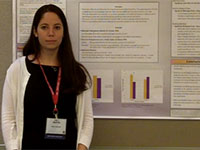Thinking about Death, East and West
It’s unsettling to think about our own death, which is why we have ways to protect our sense of self when we’re reminded of our mortality. For example, research has found

Research has found that we become more critical of those who aren't like us when we have death in mind.
that we become more critical of those who aren’t like us when we have death in mind. However, a study to be published in an upcoming issue of Psychological Science found that there are cultural differences in these protective responses, specifically between Asian and European Americans.
In a first study, European-Americans and Asian-Americans either had to write about their own death or about dental pain (the control group). They then had to decide how much bail to demand for a prostitute and take a survey on their attitudes toward prostitution. As past research has found, European-Americans who thought about death were harsher towards the prostitute than the control group. Interestingly, although Asian-Americans started out conservative, those reminded of their mortality were kinder towards the prostitute. The same pattern was found in a second study where European-Americans who thought about their death were more likely to blame an employee who had been injured in an accident – of no fault of his own – while Asian-Americans were less likely to blame him.
Since European-Americans tend to be more individualistic, thinking about their own death is more threatening and leads to harsher protective responses. Asian-Americans, on the other hand, tend to be collectivists, their sense of self is more defined by their interpersonal roles. So reminders of mortality makes them more likely to reach out to others.




APS regularly opens certain online articles for discussion on our website. Effective February 2021, you must be a logged-in APS member to post comments. By posting a comment, you agree to our Community Guidelines and the display of your profile information, including your name and affiliation. Any opinions, findings, conclusions, or recommendations present in article comments are those of the writers and do not necessarily reflect the views of APS or the article’s author. For more information, please see our Community Guidelines.
Please login with your APS account to comment.